Adverbs of time and place – ظَرْفُ الزَّمَنِ و المَكَانِ | Arabic Free Course
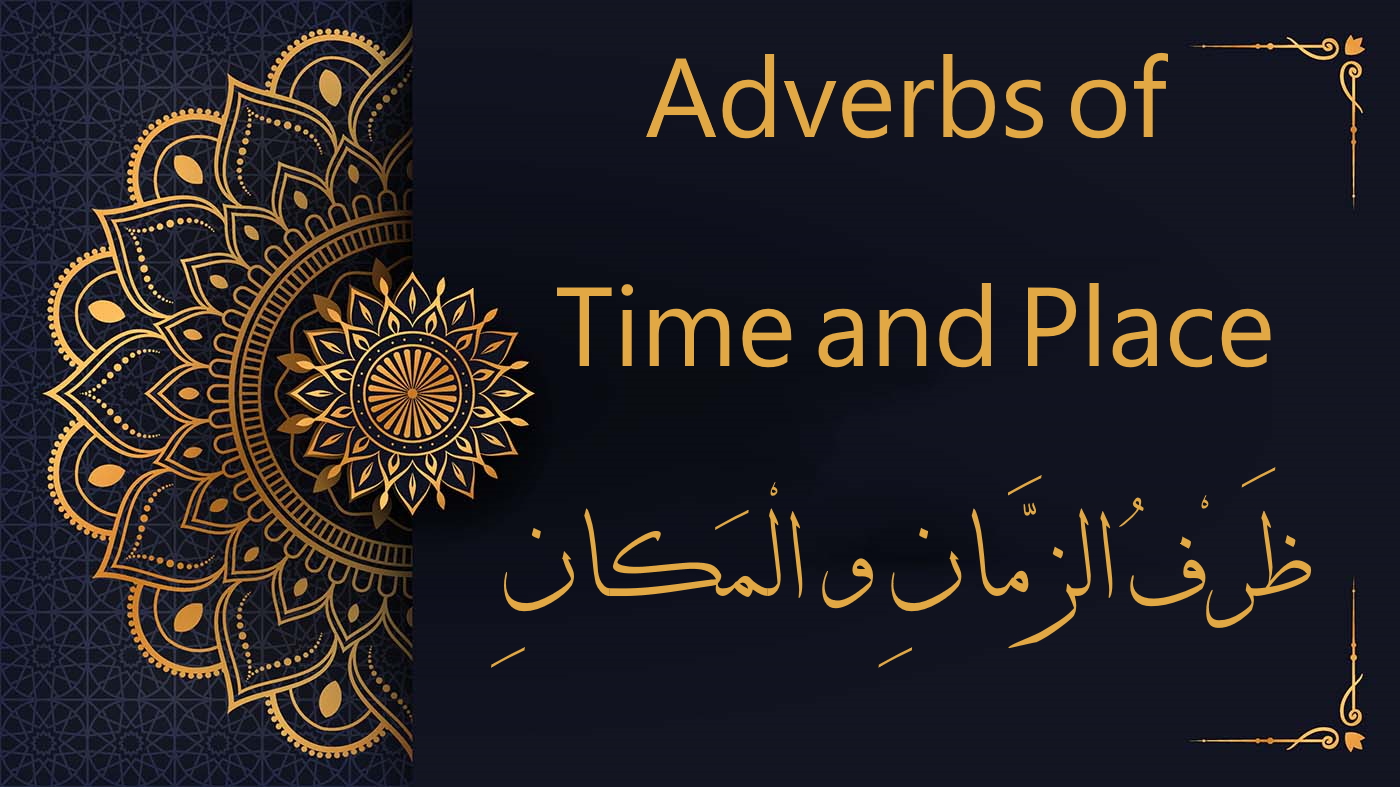
Adverbs of Time and Place in Arabic ظَرْفُ الزَّمَنِ و المَكَانِ While certain words impact nouns and pronouns similarly to prepositions, they aren’t categorized as such. Instead, they serve as adverbs, specifically denoting time and place. Usage of adverbs denoting time and place in the Noble Quran Here are notable instances of adverbs indicating time […]
Arabic reading practice | Arabic course | lesson 8
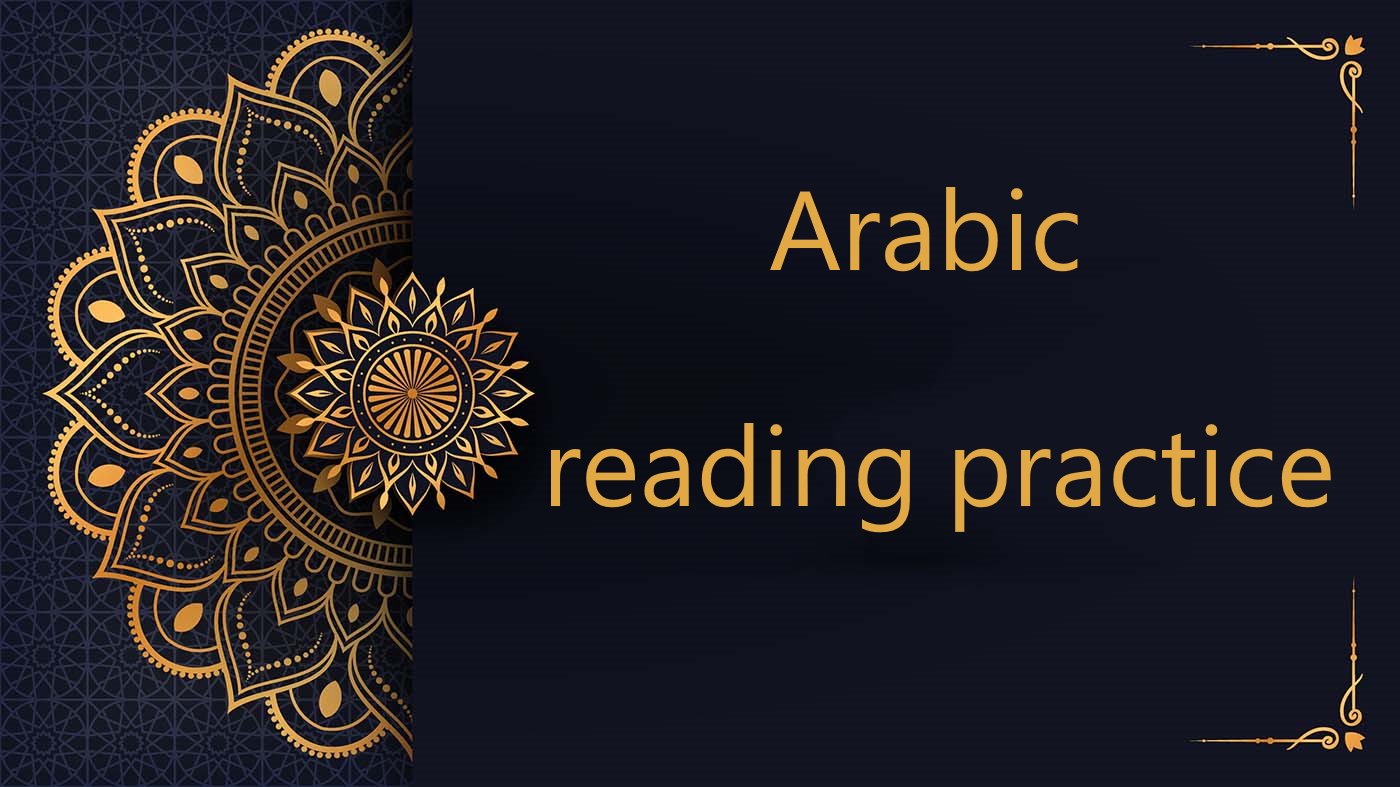
Arabic Reading Practice | Lesson 8 In Lesson 8 of our Arabic learning journey, we will apply all previously learned concepts to practice Arabic reading. Here’s a recap of the topics we’ve covered: Presentation of the Arabic alphabet The short vowel marks Double end-of-word vowels – tanween Long vowel marks The absence of a […]
Prepositions in Arabic – الْحُرُوفُ الجَرِّ | Arabic Free Course
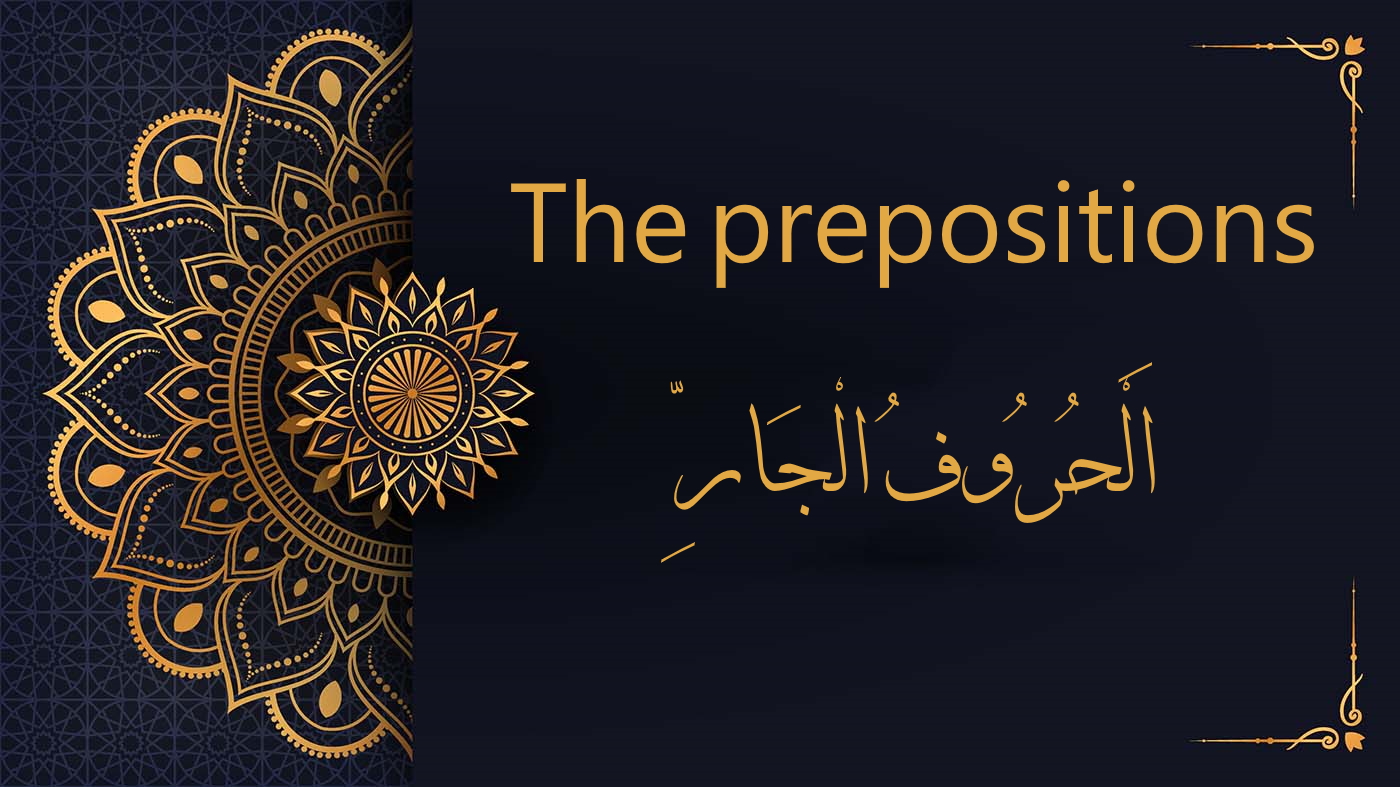
Prepositions in Arabic – الْحُرُوفُ الجَرِّ Prepositions are words that, when paired with nouns or pronouns, form meaningful phrases. These distinct linguistic elements not only possess their own inherent meanings but also influence the associated nouns and pronouns. Specifically, they can alter the vowel of the noun’s final letter, changing it from dammah or fatha […]
Exploring the Joined Form of Arabic Letters – Free Course | Lesson 7
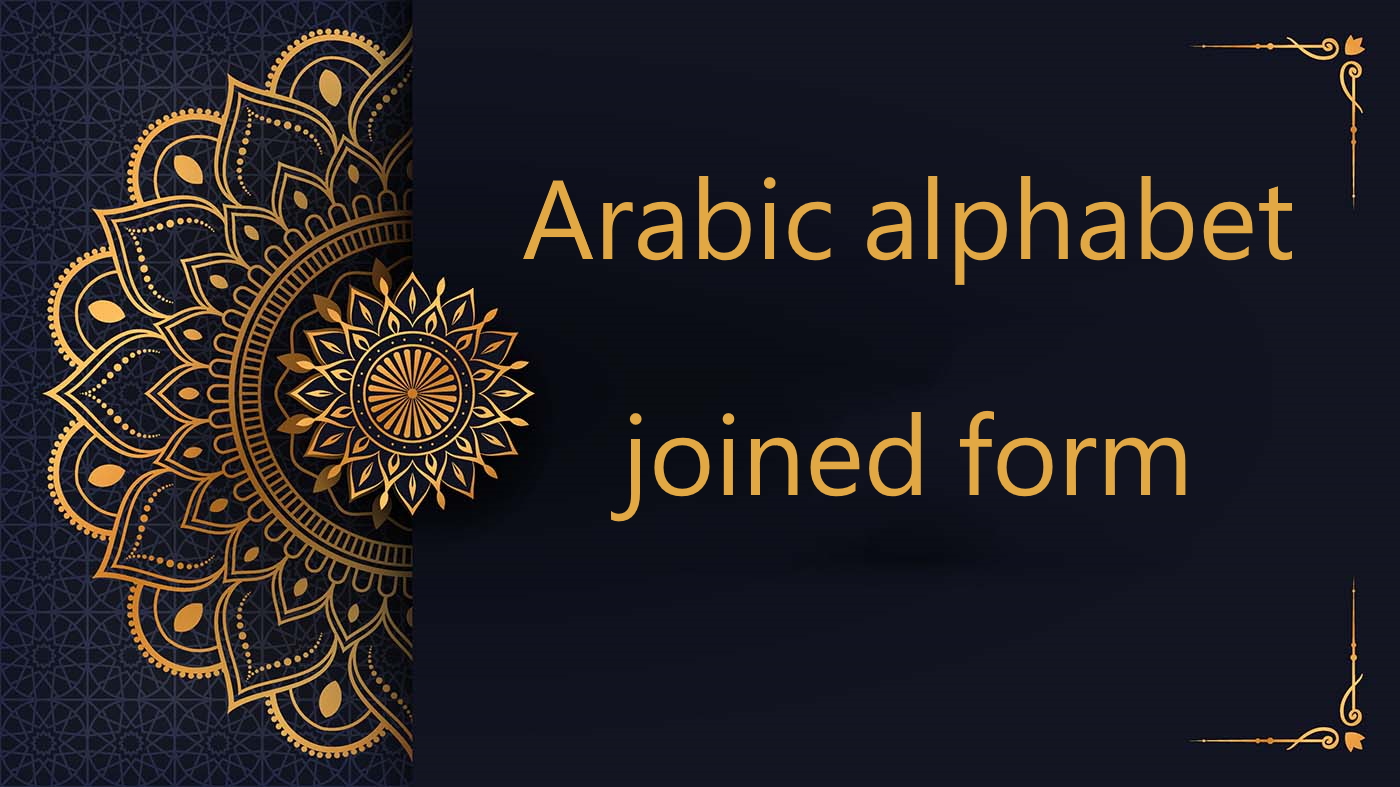
Exploring the Joined Form of Arabic Letters Free Course | Lesson 7 In Lesson 7, we’ll delve into the joined form of Arabic letters, building on our understanding from the previous lesson where we explored the isolated forms. Arabic letters can appear differently based on: Their position in a word (beginning, middle, or end). Specific […]
Pronouns in Arabic – الضَّمَائِرُ | Arabic Free Course
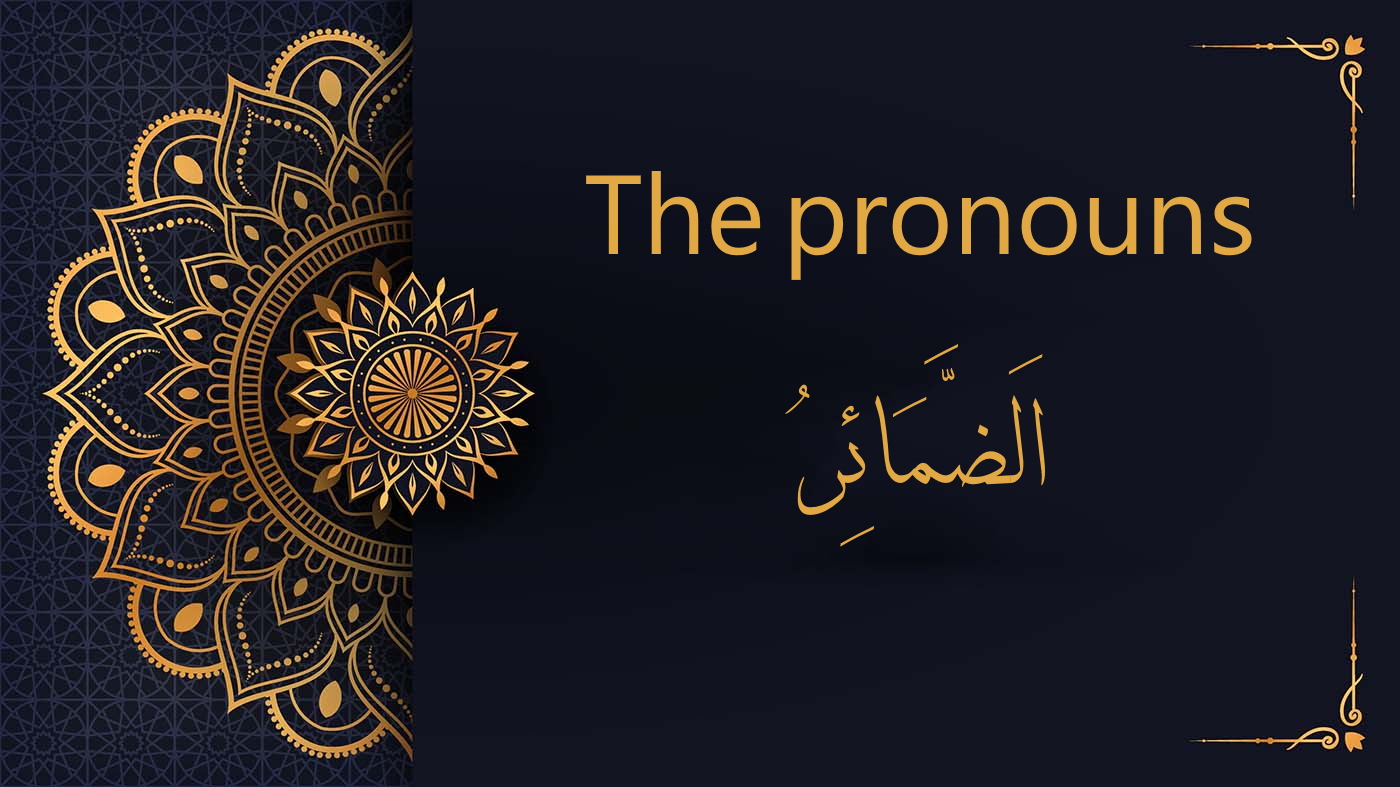
Pronouns in Arabic – الضَّمَائِرُ Introduction Pronouns, integral components in the structure of languages, serve as stand-ins or replacements for nouns, providing fluidity and context to our sentences. Think of them as shorthand markers, represented by words like “he,” “her,” “their,” “I,” and so on. In the vast and intricate realm of Arabic grammar, […]
Understanding The Shaddah in Arabic – Free Course | Lesson 6
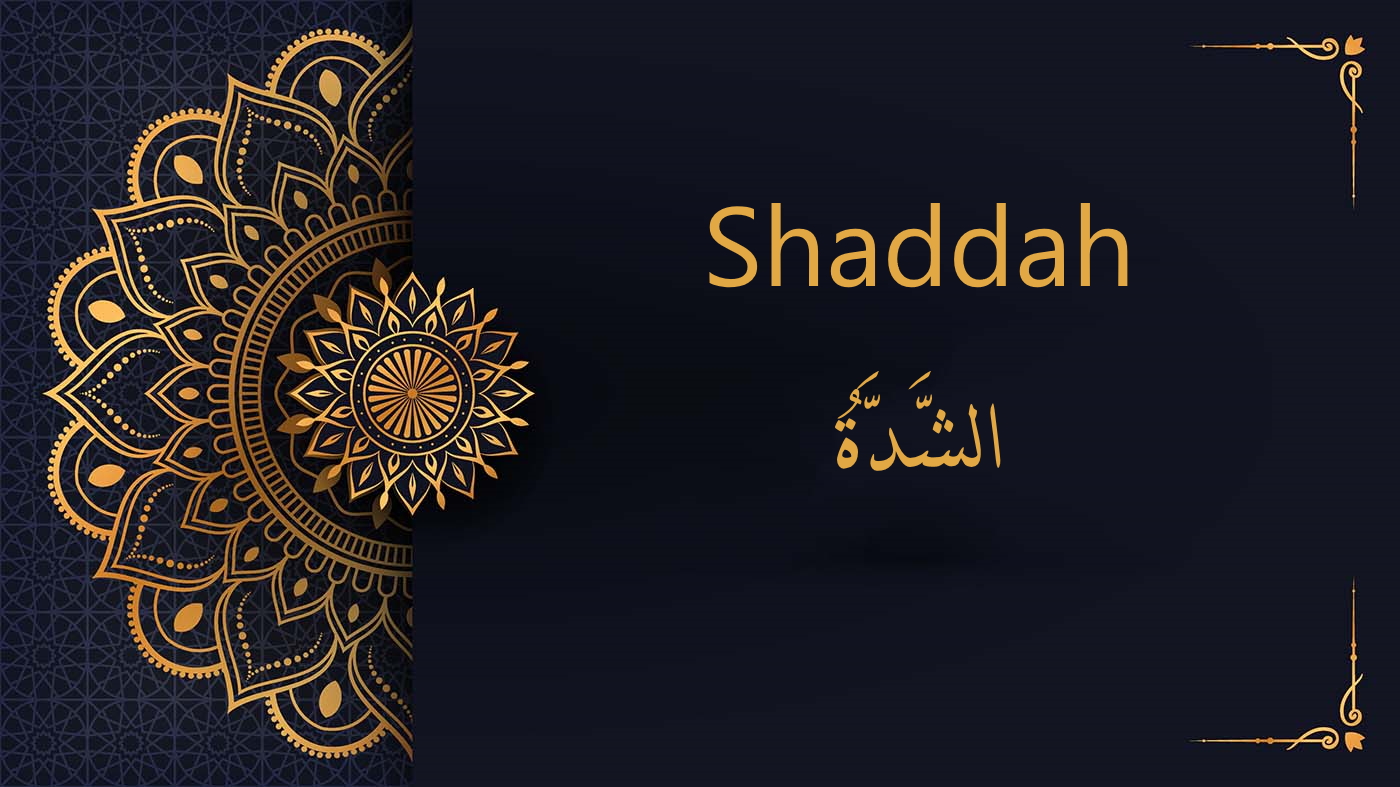
Understanding The Shaddah in Arabic Free Course | Lesson 6 We previously studied in our series of alphabet arabic free courses: the letters of the Arabic alphabet short vowel marks the tanween long vowel marks the Sukoon In Lesson 6, we’ll explore the doubling of Arabic letters, specifically when a letter with a […]
Sukoon | Arabic Free course | lesson 5

Sukoon | Arabic Free course | lesson 5 Welcome to our 5th lesson in the Arabic free course. Previously, we explored Arabic alphabet letters, short vowel marks, tanween, and long vowel marks. In this new lesson, we delve into the concept of sukoon (the absence of a vowel) in Arabic. Beforehand, we learned how […]
The plural in Arabic – الْجَمْعُ | Arabic Free Course
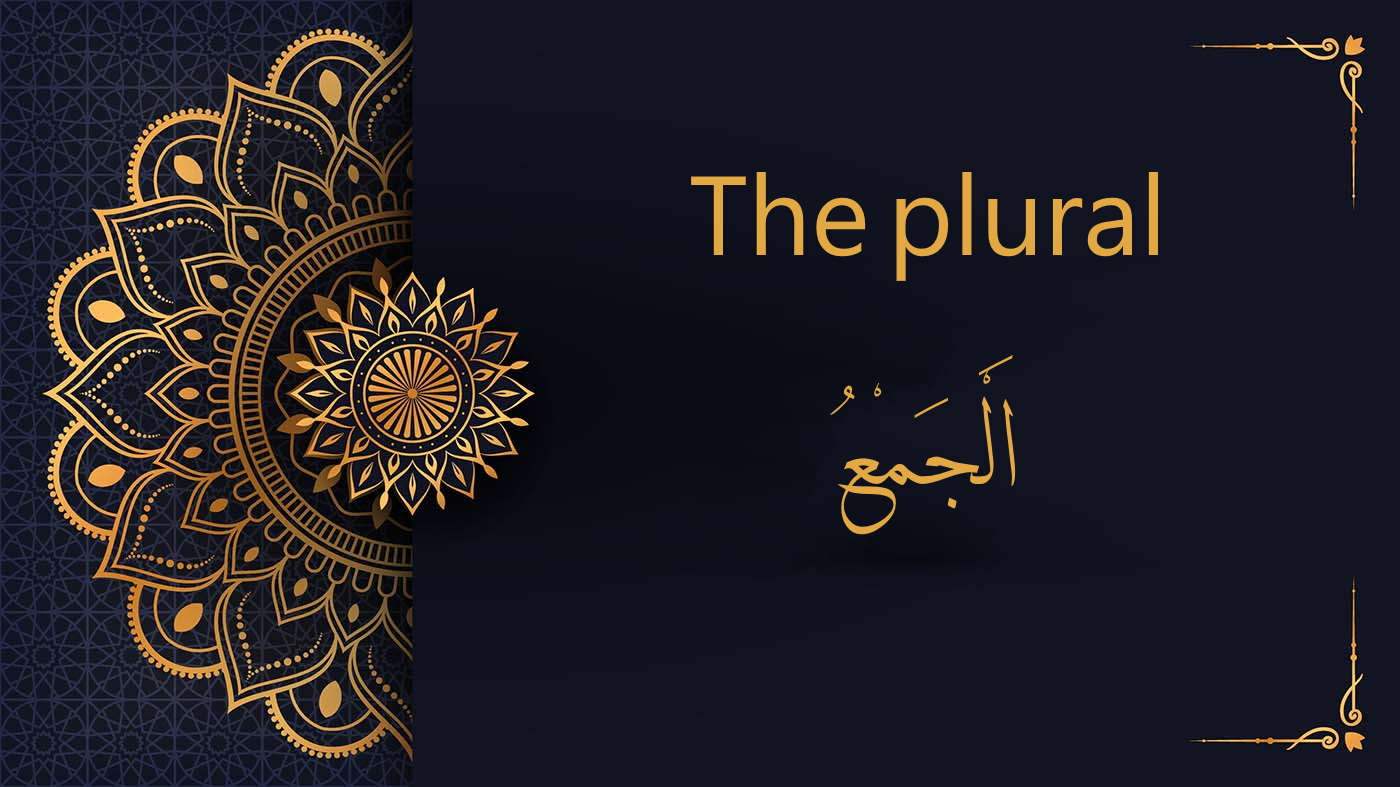
The plural in Arabic – الْجَمْعُ Introduction In Arabic, plurals are categorized into two distinct types: Sound plural – اَلْجَمْعُ السَّالِمُ Broken plural: اَلْجَمْعُ الْمُكَسَّرُ A. The sound Plural – اَلْجَمْعُ السَّالِمُ The Masculine Sound Plural In Arabic, the sound plural stands out for its regularity and simplicity. […]
The dual in Arabic | الْمُثَنَّى | Free Arabic Course
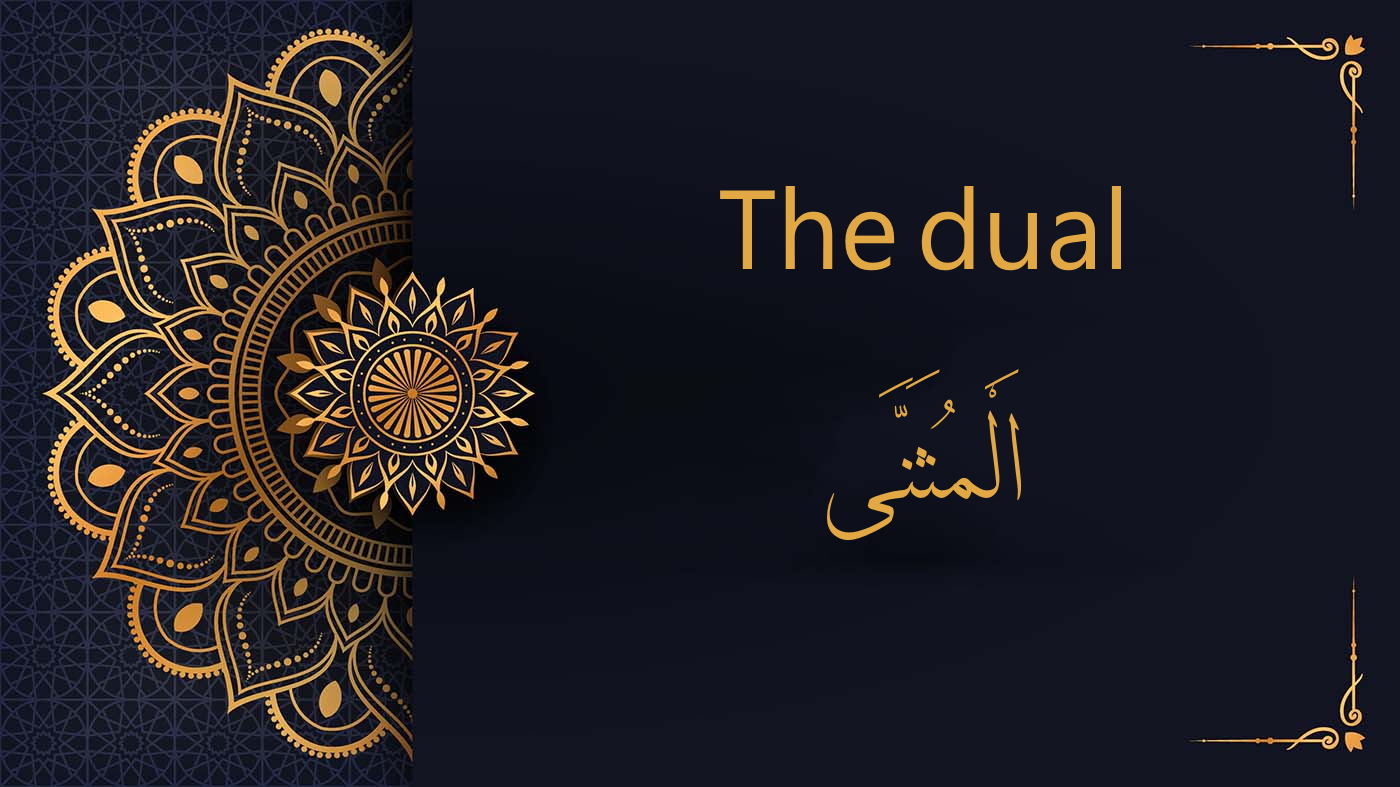
The dual in Arabic – الْمُثَنَّى Introduction In English, we differentiate between singular and plural forms. In contrast, Arabic encompasses three numerical distinctions: singular, plural, and the unique dual form. المُفْرَدُ Singular الْمُثَتَّى Dual الْجَمْعُ Plural 1. Crafting the Dual Form in Arabic In Arabic, […]
Exploring the Arabic Noun: الاِسْمُ | Lesson 2
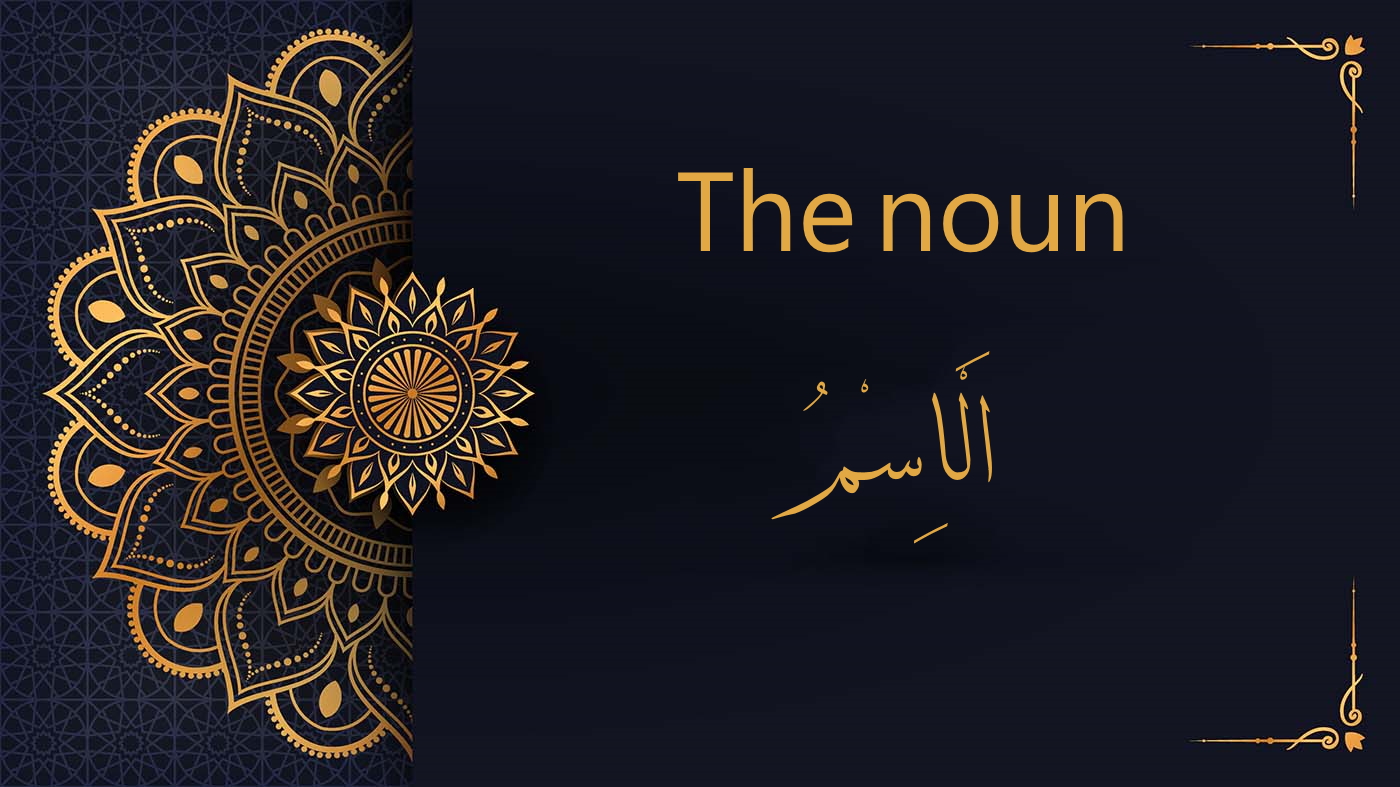
Exploring the Arabic Noun: الاِسْمُ Nouns (اَلْإِسْمُ) in Arabic can be categorized into two types: النَّكِرَةُ – Indefinite المَعْرِفَةُ – definite 1. Indefinite nouns – أَسْمَاءُ النَّكِرَةُ These refer to general names assigned to both living and non-living entities (common nouns). Indefinite nouns typically end with nunnation. […]

